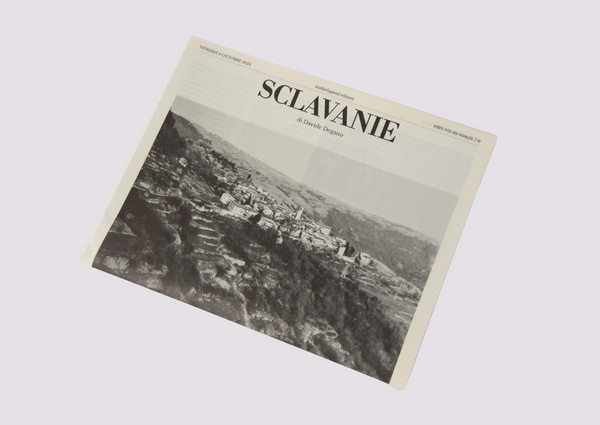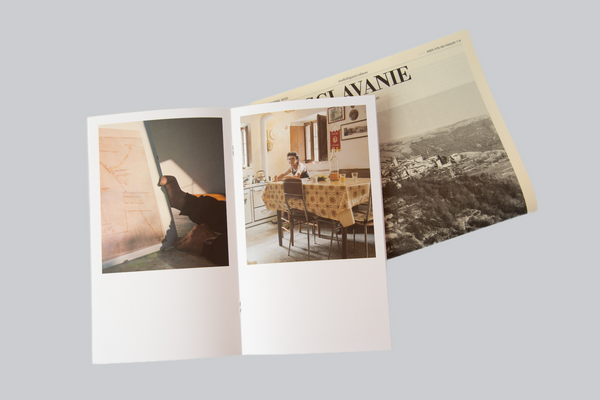


Davide Degano
Sclavanie
Studio Faganel, Gorizia — 2023
Sclavanie tells the story of the rediscovery of a geographical microcosm, of a mountain area on the border between Italy and Slovenia, the author's place of origin. Sclavanie is a term that indicates the Slavic origins of the first populations who inhabited these territories. Today it has completely changed meaning, and has been absorbed by the Friulian language to indicate, in a derogatory way, the people who live mainly in the mountainous border areas and who retain their Slavic roots.
The linguistic structure of Friuli Venezia Giulia is complex and peculiar. Its geographical position makes it an obligatory place of passage on the European north-south, east-west routes. Here Latin, Slavic and Germanic languages meet, a legacy of a past that saw these populations living alongside each other. Friuli Venezia Giulia is the only region in Europe where four official languages are still used in the same territory: Italian, Slovenian, Friulian and German.
Degano, with an ethnographic gaze, explores this area characterized by emigration and the depopulation of small mountain villages. These phenomena have weakened the oral transmission and survival of memories and ancient traditions and require concrete strategies to reverse the trend and trigger a "return to the village".
Degano's research moves through an active, critical and conscious re-examination of the "local", investigating the common memory handed down by the inhabitants who resist in these places. This project aims to be an opportunity to reflect on the values of living and community building, on their transformation, on degradation, on extinction but also on rediscovery.
What opportunities do these territories offer? What vocations do they respond to? How can they compete in the plots of metropolitan globalism? These are some of the questions posed by the author who looks at the mountain village not only as a nostalgic repositioning strategy, but as a real chance for territorial regeneration, and in which a quality of life is recognized like in few other contexts.
Davide Degano attempted to address the issue "at home", dealing with a controversial vision of his places of origin, bewitched by the beauty and power of these lands.